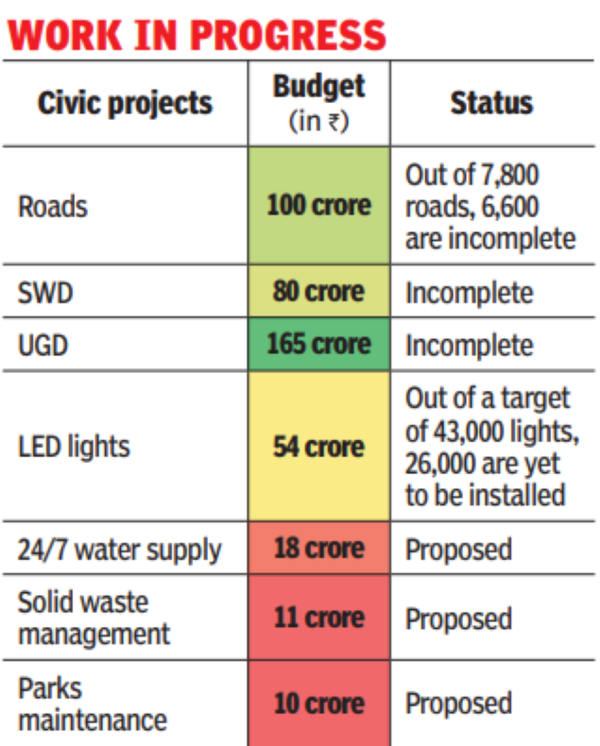[ad_1]
Multiple civic projects, including road works, storm water drains, and underground sewers are on hold. Public toilets and parks are in a state of disrepair. There are two reasons for this. First, nearly ’50 crore proposed for these projects is yet to be released by the state government. Second, almost all departments face acute shortage of staff.

For instance, the health department, which runs primary health centres, registers births and deaths, manages solid waste, oversees sanitary hygiene, and takes disease prevention measures, has just 14 employees though the sanctioned strength is 25. Absenteeism compounds the problem, a senior official said. “It makes it challenging to execute door-to-door garbage collection,” he said.
“The department’s efforts to remove stray cattle are also hampered. To capture a cow we need at least four people. We have just 14 people for 70 wards,” he said. The engineering department that lays roads, maintains streetlights, builds schools, hospitals and other public spaces has just five assistant engineers – one for each zone – to oversee 70 wards.
In contrast, the Greater Chennai Corporation has one for each of its 200 wards. “We can’t even complaint because there aren’t enough staff to even listen to us,” rued resident-activist David Manohar. Former municipal commissioner of Pallavaram D S Sivasamy, who has now retired, said the lack of resources and personnel has led to lack of maintenance. Streets are full of potholes and storm water drains are incomplete.
This leaves residents vulnerable to flooding with the monsoon imminent. Several wards still lack proper underground sewers. Public parks and toilets are not maintained either. “Most of our parks are unusable with broken equipment and unsanitary conditions,” said Manohar.
To turn the tide, Tambaram Corporation is looking to get corporate social responsibility initiatives to take on civic projects. “We ask organisations to contribute to the upkeep of toilets, parks and flyovers in return for displaying their boards,” said commissioner R Alagumeena.
“We have begun planning for the 15 newly integrated areas. This includes critical infrastructure upgrades such as underground sewers, round-the-clock water supply, and beautification of flyovers and roads,” she said. Residents remain sceptical.
[ad_2]
Source link





Join The Discussion